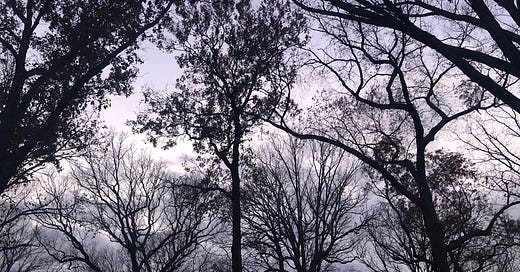Four years ago today I was on a retreat with one of my best friends just north of Chicago. We wandered down paths, mostly keeping silent, occasionally sharing a thought or a prayer out loud. We paused at a lake, sitting together on the shore as we listened and prayed. I remember picking up an acorn, turning it over and over in my hand, and taking it with me as a reminder of the beauty and greatness held within something small.
I woke the next morning to a text saying my nephew, Josiah, had been born and was not doing well. Six agonizing days later he died. He would be four tomorrow.
"I have felt its approach in the back of my mind, O Lord, like a burden tilting toward me across the calendar. I have felt its long approach, and now it has arrived. This is the day that marks the anniversary of my loss, and waking to it, I must drink again from the stream of a sorrow that cannot be fully remedied in this life. O Christ, redeem this day."1
In my experiences with grief over the years, both in my own life and in walking closely with others, I have found some slight semblance of order in simply acknowledging the reality that grief is weird. Giving name to the chaos has given me space to let it be chaos. Grief is not a purely mental burden; it pays no attention to reason. It brings the whole body, mind, and heart into the strangest of pains. In a matter of hours you find yourself vacillating seamlessly between taking care of basic human needs (eating, drinking, sleeping), staring blankly at the floor, and then laughing at silly antics that seem entirely necessary and entirely irreverent. Suddenly you’re crying again. Questions flood in— Is this real? What is going on? Is this a joke? Hopes you never realized were there stab deep with the absoluteness of their impossibility. Watching others grieve exponentially increases the pain. The loss does not evaporate— each one must bear it; each one must make the grief their own.
I met a four year old recently. He was full of words, eager to show me around his backyard, to teach me which blackberries to pick, to use a knife that was too big for him. As I entered his world, vitality exuded from his energetic little body. It was in the joy of being with him that I tasted the salt of my own not-so-distant sorrow. This boy was about the same age as my nephew. We kept playing in the mud; I took note of my internal chaos. Four years later grief is still weird. I expect it to be weird for a lifetime.
We buried Josiah near an oak tree with his face looking East, looking expectantly toward the rising sun. The ground was littered with acorns. I picked one up, knowing there is beauty and greatness to be found in something small. Yes. Josiah’s little life held such profound and precious power— the ripple effects are still ongoing. One day, all things will be made new, and one day the sun will rise. But for now, we grieve.
from A Liturgy for the Anniversary of a Loss, “Every Moment Holy, Volume II,” by Douglas Kaine McKelvey





Thank you for sharing about Josiah, his life and death. Grief certainly makes us vulnerable in all sorts of ways. I love this paragraph's descriptions:
"Hopes you never realized were there stab deep with the absoluteness of their impossibility. Watching others grieve exponentially increases the pain. The loss does not evaporate— each one must bear it; each one must make the grief their own."
August is also the month one of my husband's college friends died from cancer, so this topic of looming anniversaries has been on my mind. The experience of his passing last year -- along with the grief of his widow, my husband, and others -- was a viscerally charged and complicated thing. Those stabs of absoluteness cut deep. And I'm sure it will continue to be weird and intermingled as time goes on. Thanks for sharing.
Thank you for sharing. I’m so sorry to hear about this friend. Those are sorrows like no other.